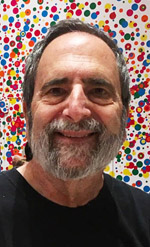By Laurie Baron, Ph.D

SAN DIEGO — According to the Brennan Center for Justice, 33 states have introduced 165 bills purportedly to guarantee election integrity, but really to suppress the votes of core Democratic constituencies like ethnic immigrants and people of color. To fend off charges of racism, these states are now trying to disguise the real intent of such legislation. Here are some examples:
In Georgia one proposal criminalizes giving free food or water to people standing in line to cast their votes. Waiting a long time to vote disproportionately affects black voters because the numbers of polling places in their precincts are limited. A “colorblind” amendment would allow vendors to sell food and drink to such voters as long the prices are consistent with what these items cost at an airport or professional sports stadium.
Georgia seeks to ban early Sunday voting when African American churches rent buses to take their congregants to vote, a practice dubbed “Souls to the Polls” Since this appears to discriminate against white Christians, some ecumenical legislators have suggested banning Friday and Saturday voting to prevent a Mosque to the Polling Kiosk and a Jews Vote After Pews movements from developing.
Where a dearth of polling places is the problem, a “colorblind” solution is opening polling places at public venues less frequented by some groups like country clubs and NASCAR races.
Purging voter rolls has been a favorite tactic of voter suppression, and, the majority of those stricken are people of color. To avoid the impression of racial bias, the criteria for removal will be based on having distinctly un-American names like Ahmed, Dipak, Keshawn, Jorge, and Woo.
Drop boxes will be guarded by vicious dogs who have been trained to sniff out members of communities the police consider likely felons.
Mail-in ballots must be sent in express FedEx and UPS envelopes, and the signatures on the ballot must be authenticated by licensed graphologists. The costs for each will be borne by the voter.
*
Baron is professor emeritus of history at San Diego State University.